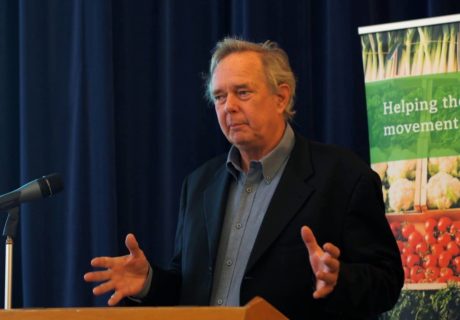Organic farming practices could counteract the world’s annual carbon dioxide output, according to a new white paper from the Rodale Institute.
Rodale is the US research organization behind the longest-ever parallel farming system trials. For 33 years it has grown a range of crops using organic, conventional and (more recently) GM systems. It has already built up compelling evidence to show that over the long-term organic yields are equal to conventional crop yields, while using around 25% less energy and producing higher profit margins for farmers.
Now Rodale’s assiduously conducted research is pointing to the hugely important role that organic agriculture could play in managing down atmospheric CO2.
Rodale’s white paper says that using what it calls “regenerative organic agriculture”, such as low-tillage, cover crops and crop rotation, will keep photosynthesized carbon in the soil instead of returning it to the atmosphere
Based on a review of 75 peer-reviewed studies, Rodale concludes that if all cropland were converted to “regenerative” systems it would sequester – or ‘lock up’ – 40% of annual CO2 emissions, while switching global pastures to organic or similar would add another 71%.
The authors of the white paper argue that carbon sequestration through regenerative agriculture provides a practical and proven way to ‘decarbonize’ the plane. They write: “By investing in multiple, global farming system trials we can provide the needed data to support widespread transition through incubating skills and providing a global support network, on the ground, for farmers to lead the evolution to regenerative systems.”




